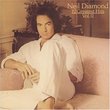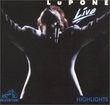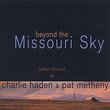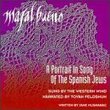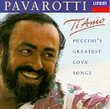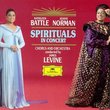| All Artists: Giuseppe Verdi, John Eliot Gardiner, Orchestre Revolutionnaire et Romantique, Luba Orgonasova, Anne Sofie von Otter, Monteverdi Choir, Luca Canonici, Alastair Miles Title: Verdi: Requiem - Quattro Pezzi Sacri Members Wishing: 0 Total Copies: 2 Label: Philips Release Date: 4/11/1995 Album Type: Box set Genre: Classical Style: Number of Discs: 2 SwapaCD Credits: 2 UPCs: 0028944214222, 028944214222 |
Search - Giuseppe Verdi, John Eliot Gardiner, Orchestre Revolutionnaire et Romantique :: Verdi: Requiem - Quattro Pezzi Sacri
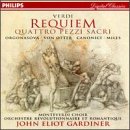 | Giuseppe Verdi, John Eliot Gardiner, Orchestre Revolutionnaire et Romantique Verdi: Requiem - Quattro Pezzi Sacri Genre: Classical
This religious masterpiece, composed in memory of the great Italian novelist Alessandro Manzoni (1785-1873), has themes even more cosmic than any in Verdi's other operas: life and death, heaven and hell, the Christian v... more » ![header=[] body=[This CD is available to be requested as disc only.]](/images/attributes/disc.png?v=15401716) ![header=[] body=[This CD is available to be requested with the disc and back insert.]](/images/attributes/disc_back.png?v=15401716) ![header=[] body=[This CD is available to be requested with the disc and front insert.]](/images/attributes/disc_front.png?v=15401716) ![header=[] body=[This CD is available to be requested with the disc, front and back inserts.]](/images/attributes/disc_front_back.png?v=15401716) |
Larger Image |
CD DetailsSynopsis
Amazon.com This religious masterpiece, composed in memory of the great Italian novelist Alessandro Manzoni (1785-1873), has themes even more cosmic than any in Verdi's other operas: life and death, heaven and hell, the Christian vision of humanity's redemption, the end of the world, and the last judgment. Verdi's music rises to the tremendous demands of this subject matter; it is music of grandeur, guilt, terror, and consolation, with a breadth of vision and an intensity of feeling unique in the composer's work and in religious music. John Eliot Gardiner's is the first recording made with period instruments, a kind of performance that some musiclovers still dismiss as dilettantism, more concerned with musicological correctness than feeling and communication. Gardiner's powerful performance blows such objections away, and this recording takes a rightful place alongside the best modern instrument versions. --Joe McLellan Similarly Requested CDs
|
CD ReviewsMaybe 'Classical' but Revelatory - and Orgonasova is supreme Mr. Matthew J. Williams | Sydney, NSW Australia | 11/16/2001 (5 out of 5 stars) "This recording has been the subject of equally passionate praise and denouncement. Some critics threw about words like 'classical' and 'unidiomatic'. They were not entirely unjustified, but after acquiring this recording of one of my favourite pieces of music, I no longer care. This is revelatory.No other recording has such detail, such clarity, such remarkable presence. Phillips should be congratulated. Few other performances have no weak links. All the soloists are excellent, the choir & orchestra superb.In particular, I cannot find enough superlatives for Luba Orgonasova. It is an endless mystery to me why this soprano is so scarce in the catalogue. In this role, at least, she reigns supreme. Schwarzkopf; Studer; Stader; Sutherland; Scotto - all the "S" sopranos seem to have sung this! - Price; Gheorghiu; Caballe; Freni, the list goes on, NONE of these excel Orgonasova in this part. Verdi made incredible demands on his soprano soloist and the far lesser-known Orgonasova meets those demands better than any in this illustrious company.The key to her success is that she has a strong chest voice which is properly integrated tonally with her head voice. To understand what I mean, just listen to that crucial part in the Libera Me (Requiem Aeternam), where she floats a high B which is truly pianissimo, followed by the ferocious recapitulation of the Libera Me culminating in the word "terra", which so many sopranos either under-power, or resort to a distortion of tone. Not Orgonasova. This is one phenomenal instrument.The other aspect of this recording where its quality has the edge over all the competition is in the remarkable integration of Orgonasova and Von Otter's voices in the Recordare & Agnus Dei. No other recording I have heard blends the two parts so perfectly - almost like one singer who can sing in harmony with herself!For buyers who can afford a few recordings, this may be an excellent complement to a more operatic recording (I would recommend the intermittently-available live 1960 Fricsay - don't confuse with his studio recording) and/or the great Giulini with Schwarzkopf; Ludwig; Gedda; & Ghiaurov, now at mid-price on EMI Great Recordings of the Century. The present recording is full price over two discs; which may deter the budget conscious, but it is well worth it for anyone who cares to know this music intimately, to have its mastery revealed afresh." Gardiner or Shaw: A difficult choice A. J. Robb | Los Angeles, CA | 08/08/2002 (5 out of 5 stars) "Verdi's mass for the dead is one of my favorite pieces in the western canon, so I've collected a few over the years. You can read the other reviews for poetic waxing on the themes and scope of this work, but I will concern this review with the musical and performance merits of two specific recordings: the best period performance (Gardiner's, albeit the only one) and arguably the best modern performance (recorded by the regrettably late Robert Shaw, and there are some other moderns in close contention).I won't make you read the entire review to get my take: I prefer the Gardiner/ORR recording to the Shaw/ASO for the simple reason that there is more fire, drive, dynamic, or other related adjective involved in this performance than any other.Gardiner's players are absolutely deadly - you need look no further than tracks two and three for evidence of that! The tempi, while quite brisk, do not daunt this remarkable ensemble, and they play with an astounding precision. 50 percent of that credit is due, however, to Gardiner's outstanding conducting (most/all of his recordings with just about any group are staggeringly precise - check out The Planets with the Philharmonia!).The choir, being the Monteverdi Choir, sings an incredible performance, but using far more vibrato than is normally heard from them - consistent with the style of the work. Their technique and facility equal that of the orchestra: a combination that is difficult to beat.The tempi, taken as literally from the score as possible, are faster than we normally hear (by lesser ensembles) so, some listeners may feel that the music is not given enough time to breathe, or that it is too fast to comprehend. Enter Dr. Shaw...Robert Shaw's outstanding account of this requiem has an incredible asset: phrasing unparalleled in any other recording. Under the guidance of the best choral conductor of his time, the Atlanta Symphony Chorus responds to their director's brilliant musicality with aplomb. His superb vocal phrasing transfers well to the strings too. Every phrase has a top and bottom, and he exposes many textures that other conductors do not.But, Shaw's larger, less agile, and more-distantly miked ensemble do not capture the immediacy that Gardiner's does. Compounded with a slower performance, Shaw's - while breathtakingly beautiful - does not have Gardiner's impact.So here's my recommendation: purchase Gardiner for the recording quality, tempo, orchestra, perferable choir, and effect. Purchase Shaw for the contemplative setting, outstanding choral phrasing/conducting, and superior soloists. Really, purchase both when you can.But to feel the true power and effect of Verdi's opera for church, Gardiner's is the one to get." The Ultimate ! Alex | Australia | 04/23/2001 (5 out of 5 stars) "My musical tastes span across the entire spectrum of music. I can appreciate all music where true talen or skill has been a part of a performance or a writing of a song or a piece. For me music is something profoundly special, something spiritual above all else. Classical music evokes this moreso than any other, and certain classical repertoires can place many a listener in a state of sheer bliss and utopia. Of over some select 350 classical cd's I have purchased in my time, with masterpieces ranging from Bach through Handel, Beethoven, Tchaikovsky, Shostakovich, Mahler - a whole spectrum of classical eras and styles. One work shines above the rest. A requiem is, generally speaking, a sad work - that is to say, it is mainly about death and performed alongside death. Indeed the first performance of Verdi's Requiem was performed on the anniversary of the famous writer Alessandro Manzoni's passing on. The Verdi Requiem touches on hope, prayer, liberation but also destruction and calamity. Its content is nothing short of mammoth in spiritual proportions. What is brought to these words and notions, musically, is of a scale so grande, that it can, at its conclusion give the listener a sense of an opening up of the heavens, a sense of true peace and at that exact point where the final 'libera me' is chanted a feeling of release - at that moment could a person gladly die for nothing is of consequence spare the music and the peace created at its conclusion. It is difficult to explain to a reader in words what the sound of this masterpiece eminates. It is, in my opinion, the greatest ever musical work in the history of mankind. What role if any does Gardiner and the Orchestre Revolutionaire et Romantique, and the Monteverdi choir play in all of this, if any? I think that what Gardiner does with this work, is what must be done with all great Masterpieces, a sense of true justice to the music - the aim to reproduce the masterpiece as best as the composer himself could ever have imagined it. This may mean more accurately sounding instruments - in this case, Gardiner has gone for period instruments, as he often does. The logic behind this is sensible - the music was written best for those instruments, thus, logically, the music would sound best played in that setting with those instruments. In addition to the great effort Gardiner has gone to to reproduce the most similar sound to Verdi as possible, his choir and orchestra have performed second to none. Orgonasova, Von Otter, Canonici, Miles - all favourites of Gardiner. They are perhaps the best in their respective vocal ranges for this type of music. Each period, each composer requires a different feel, a different voice, each work a different tone. A requiem must be able to be both loud and bold, but also soft and gentle. Verdi's music does this without even bringing in a human to play around with it any further. But these soloists are relentless, never failing, and full of life and energy. The Orchestra is superb, the skill amazing. The brass section particularly is amazingly big - some sections leaving even the biggest brass band enthusiants in their midsts. I do at times feel sorry for the trumpet section - or perhaps moreso the poor violists sitting just in front of them bearing the full brunt of the wall of sound in the Dies Irae and Tuba Mirum... The string sections are always together and fly between crescendo and decrescendo with robotic precision. The Choir is perfect in its precise togetherness and complete appreciation at all times for the correct balance of orchestra and soloists throughout the performance. There is no better group of musicians who have come together to perform Verdi's Requiem as these, and very few Orchestras of this calibre have been put together in the history of modern classical performances. All this on a digital recording which is crystal clear at all times. If there be anything I could recommend for you to buy with your USD$31, it would be this, I know I would gladly pay a few hundred for it if I had to."
|

 Track Listings (12) - Disc #1
Track Listings (12) - Disc #1